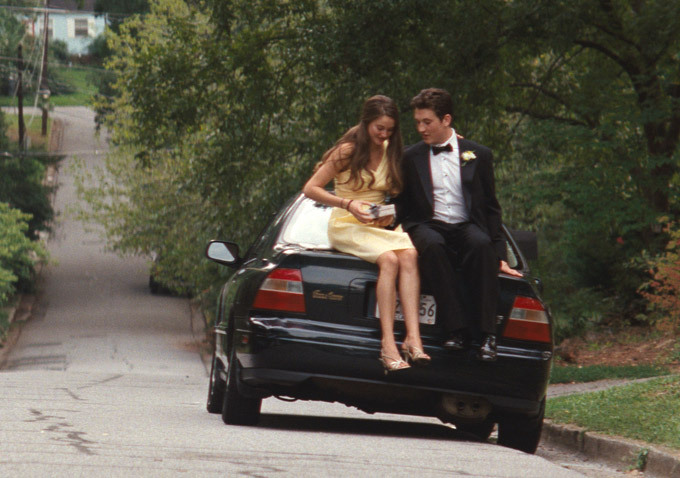by Richard Ades
Just days after the events depicted in Before Midnight, Jesse (Ethan Hawke) is still smarting from the emasculating attack he endured at the hands of Celine (Julie Delpy), the increasingly bitter love of his life. He returns to their Parisian home and is surprised to find it empty and in a state of disarray.
The phone rings. A strangely accented voice tells him he must steal a souped-up Mustang and perform a series of dangerous tasks if he ever wants to see Celine again.
There’s a long pause. “Well?” the voice asks.
“I’m thinking,” Jesse replies.
Obviously, that is not how Getaway begins. A flick that hopes to attract fans of Gone in Sixty Seconds and similar car-chase epics has no time for complicated relationships. It doesn’t even have time for exposition. Instead, director Courtney Solomon dives into the gear-gnashing, tire-squealing action before the opening credits even roll.
Via flashbacks and spare bits of dialogue, we learn that Brent Magna (Hawke) is a washed-up American racecar driver now living in Sofia, Bulgaria. We also learn that his Bulgarian wife (Rebecca Budig) has been abducted by a mysterious man (Jon Voight) who communicates with Brent through the car’s phone and threatens to kill her unless his instructions are followed to the letter.
Soon joined by the Mustang’s angry owner, a young woman known only as the Kid (Selena Gomez), Brent is ordered to perform tasks that mostly involve evading the police and always put the general public at risk. And because it’s the Christmas season, there’s a lot of general public around to be put at risk.
All of this could be entertaining if it weren’t for a couple of problems.
First, the movie suffers from unfortunate timing. In an early scene, Brent is told to drive at full speed through thick crowds of holiday revelers. Though he miraculously avoids hitting anyone, it’s an uncomfortable reminder of the Dodge-driving maniac who killed a bride and injured 16 others while plowing through a Los Angeles boardwalk crowd in early August.
More importantly, co-screenwriter and third-time director Solomon (An American Haunting) seems to have no knack for this kind of thing. The action is nearly nonstop and the destruction is massive, but frantic editing lowers the excitement level.
We see a tiny Bulgarian police car, and a split second later, it crashes. Where’s the fun in that? A last-minute chase, in which Solomon adopts the driver’s-view strategy pioneered by Bullitt (1968), offers one of the flick’s few heart-pounding moments.
Solomon’s attempts at humor also fall flat. They mostly call on the Kid to hurl insults at Brent, such as calling him a “shitty” driver—which is incongruous, considering he’s performing moves that could only be completed by someone who’s spent his life racing on Sundays and studying stunt driving the rest of the week.
In general, the talented Hawke and likable Gomez are limited to yelling at each other in the midst of all the mayhem, except during the rare quiet moments when the Kid uses her technological savvy in an attempt to figure out their tormenter’s motive. And he has one, of course, but don’t think about it too hard or you’ll start asking questions.
Getaway is designed to be mindless entertainment, after all. It’s just too bad that the mindlessness began before the first pedal was pressed to the metal.
More reviews and stories by Richard Ades can be found on his theater blog, columbustheater.org, and in the new weekly version of the Columbus Free Press, which launches Sept. 5.
http://www.youtube.com/watch?v=hM7BB16PkAw









